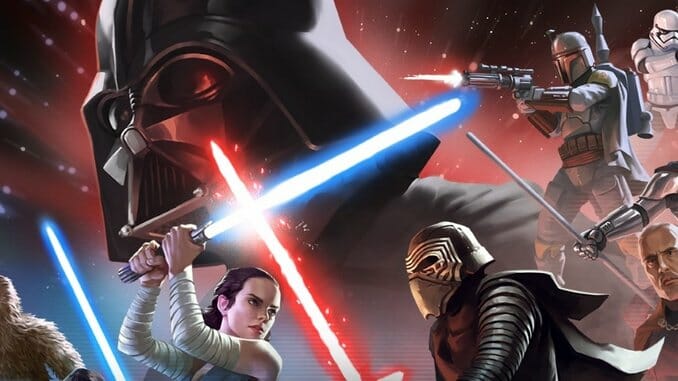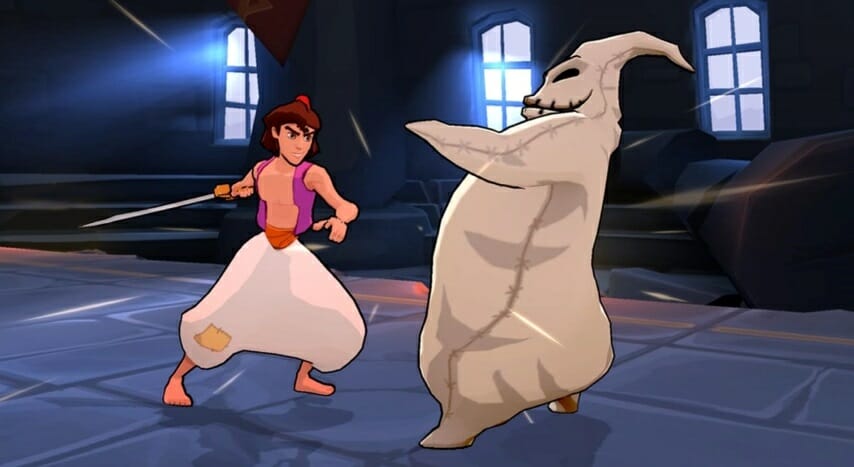
As with most fan groups these days, the people who claim to love videogames the most seem to really hate them. Proud, self-described “gamers” despise so many things of the medium and the business with a deep, burning passion. Mobile games are so hated by them that when a mobile Diablo game was announced at BlizzCon 2018, fans reacted like it was a personal assault. The contempt for what gaming gatekeepers call “casual games” is so strong that it’s basically resulted in two parallel industries that almost never intersect. You’ve got mobile gaming, which anybody with a phone can enjoy, and then you’ve got videogames, which require expensive pieces of tech that might offer some other features but are mostly intended for playing games. For “gamers” there’s no relationship between the two sides.
The funniest thing about that is that mobile games are often what the angriest of these gamers seem to want. The gamers who most complain about “politics” in games should love the mostly apolitical vacuousness of mobile games.
This occurred to me as I mindlessly tapped my phone’s screen for the hundredth time while playing Disney Sorcerer’s Arena last night. It’s the perfect game for anybody who complains about videogames being too political. It’s an endless, aimless, story-free touchathon that reduces the RPG genre to the barest essence of its combat. It’s as “pure” as videogames get, nothing but action and reward, with no dialogue or personality or ideas to distract or offend the player. It’s simple, mindless repetition built out of math and nostalgia. Anybody who thinks games are hurt by having a viewpoint or caring about people, who complain about “SJWs” ruining their games with tolerance and respect, should be glued to their phones playing mobile games like Sorcerer’s Arena.

To a certain vocal subset of videogame players who live to be angry, an unjustified political intrusion into their hobby can be something as simple as a game having a lead character that isn’t a white man. A game pointing out that Nazis are bad is an unforgivable political statement for many of the people who supported the blatantly political GamerGate movement and still gather at its old message boards and Reddit threads. At this point these anti-culture warriors and regressive trolls can gin up controversy over any game, especially if it has a story that could in any way be seen as in support of diversity, friendship and cooperation, or critical of hate and fascism. Since any narrative that’s positive or humanistic offends them so thoroughly—or at least makes the disingenuous tastemakers who cynically profit off the grievances and anger of this audience crank out their inflammatory content—and since every story will have some kind of political viewpoint, whether it’s overt or implicit, they should clearly avoid games with stories. And since mobile games try to have as little space between player and microtransactions as possible, often dispensing with story entirely, that means they’re the perfect games for those who define their status as “gamers” by always focusing on what they hate.
Want to play Final Fantasy VII Remake but think its pro-environment message and diverse cast of characters is left-wing propaganda? Grab your phone, download any number of free games that hope to pull five or 10 bucks out of you at a time, and enjoy gaming without any taint of politics or intelligence or humanity. Sorcerer’s Arena is a turned-based RPG with summons, spells, cooldown meters, and more of what you’d expect from classic Final Fantasy combat—and you won’t have to worry about any little inklings of guilt bubbling up deep inside that need to be suppressed through loudmouthed online rage. Yeah, playing microtransaction-heavy games featuring copyrighted intellectual property might make you think about predatory capitalism and the lack of any meaningful checks on corporations, but since the anti-political gamers we’re talking about pretty much only get angry when a game makes a non-white man look good, they won’t even notice that kind of stuff.
Of course, the hatred for mobile or casual games comes from the same place as the anger over “politics” in games. It’s about keeping people out. The “gamer” mentality has always been one of exclusion—of erecting a private little clubhouse to keep out people who don’t share similar backgrounds or viewpoints. That’s where the belief that women don’t play games comes from, and why some parts of the industry took such an openly misogynous turn in the ‘90s—out of a self-fulfilling desire to keep the hobby closed off to others. The irony that games designed for a larger, more mainstream audience would so perfectly suit the blinkered, discriminatory outlook of these people shouldn’t be overlooked.
Hopefully, for their own sake, gamers who complain about politics in their entertainment will realize there’s a vast library of games that meet their criteria just waiting to be discovered. All they have to do is pick up their phones, download a few of the free games whose very existence seems to offend them for some reason, and then resist the urge to pay only $19.99 for 200 extra Soul Gems, 500 Gold, and a chance at a limited edition Hero Token. Until then, perhaps they can stop complaining about literally everything that happens in the world of videogames, at least for a little while.
Senior editor Garrett Martin writes about videogames, comedy, travel, theme parks, wrestling, and anything else that gets in his way. He’s on Twitter @grmartin.